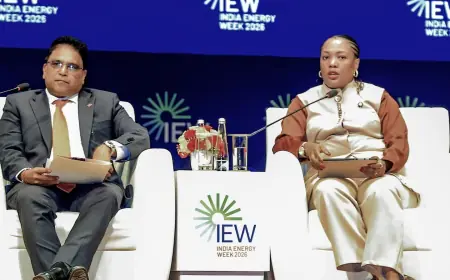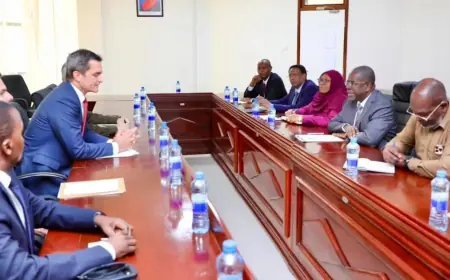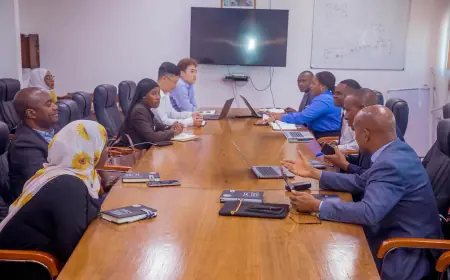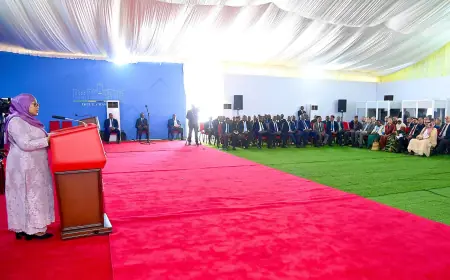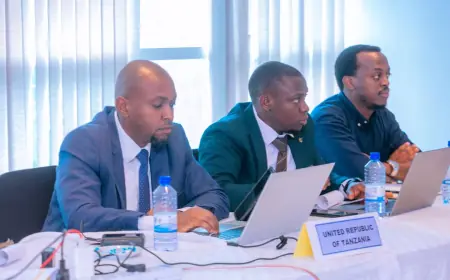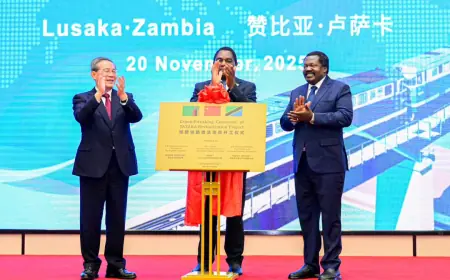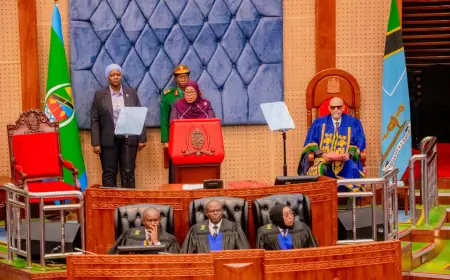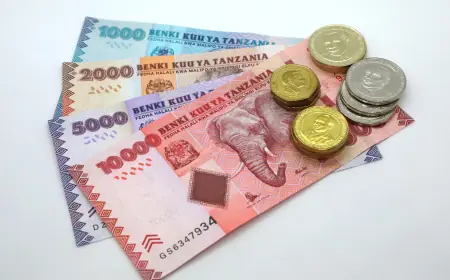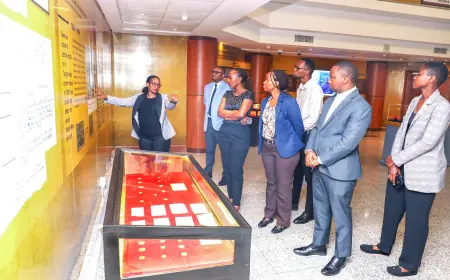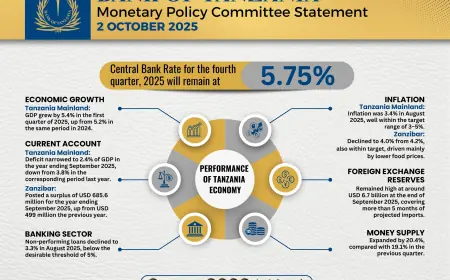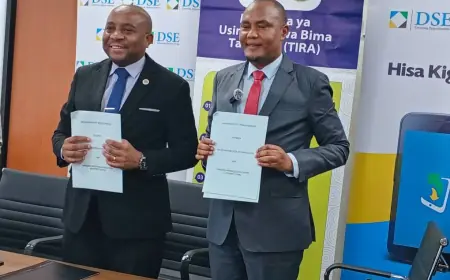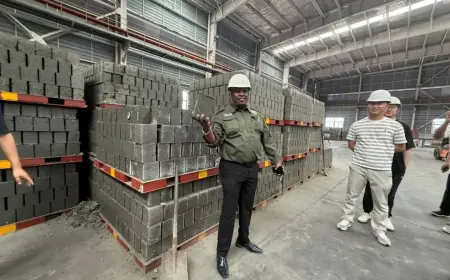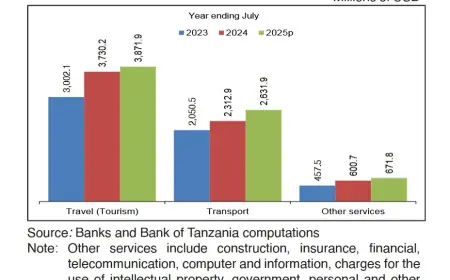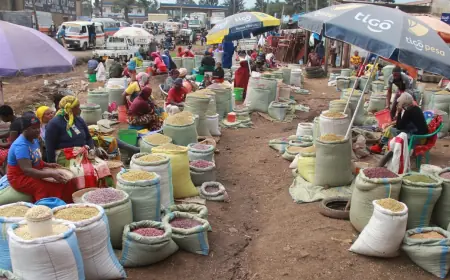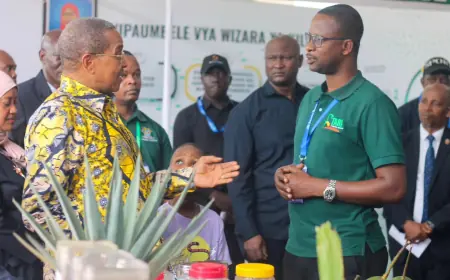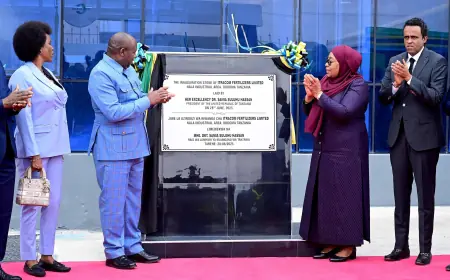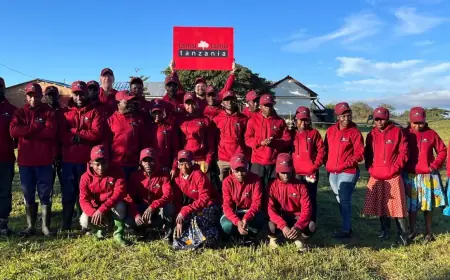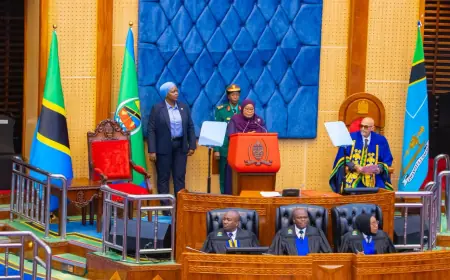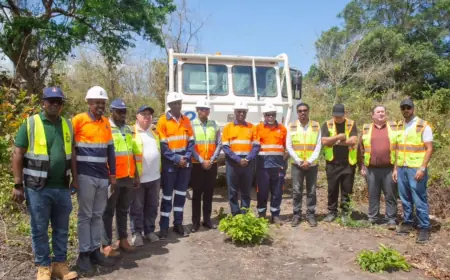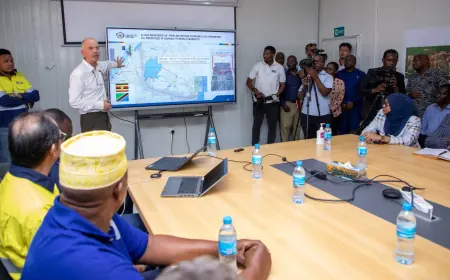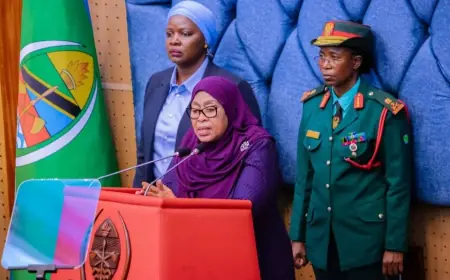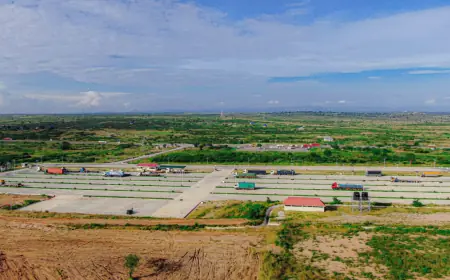Tanzania boosts foreign reserves with over $1bn in gold purchases
Governor Emmanuel Tutuba said that between October 1, 2024, and August 2025, the central bank bought a total of 9.165 tonnes of gold, valued at approximately $1.015 billion.

Dar es Salaam. The Bank of Tanzania (BoT) has intensified its efforts to strengthen foreign exchange reserves through strategic gold purchases, with more than $1 billion worth of bullion already acquired under a programme launched in October 2024.
Governor Emmanuel Tutuba said that between October 1, 2024, and August 2025, the central bank bought a total of 9.165 tonnes of gold, valued at approximately $1.015 billion.
He was speaking in Dar es Salaam on September 9, 2025, during a meeting with Rwanda’s Ambassador to Tanzania, Gen Patrick Nyamvumba, who visited the BoT headquarters.
Mr Tutuba explained that the initiative forms part of the government’s broader economic strategy to diversify and safeguard the country’s foreign reserves, while also cushioning the economy against external shocks such as volatile global commodity markets and currency fluctuations.
By April 2024, the central bank had already accumulated 3,424 kilogrammes of gold worth Sh702.3 billion, with purchases continuing in line with the plan to steadily build the national reserves.
The BoT’s Monthly Economic Review for August, released on September 8, 2025, indicates that gold exports surged in the year ending July 2025, rising to $3.97 billion compared to $3.15 billion the previous year.
This performance was attributed to favourable global market prices and increased demand, coupled with the BoT’s active involvement in buying domestic gold output.
“The gold purchase programme has delivered a dual benefit. It has boosted our official reserves while also supporting the mining sector and enabling more value retention within the domestic economy,” Mr Tutuba said.
He added that the policy aligns with practices in other resource-rich economies, where central banks accumulate gold to strengthen economic sovereignty, reduce reliance on foreign currencies, and hedge against inflationary pressures.
For his part, Gen Nyamvumba praised Tanzania’s approach, noting that the National Bank of Rwanda is keen to draw lessons from BoT’s gold purchase model and payment system reforms.
He said Rwanda viewed Tanzania’s experience as a benchmark for improving its own monetary policy tools and reserve management strategies.
Beyond gold, Mr Tutuba highlighted the Tanzania Instant Payment System (TIPS), an in-house platform that has made digital transactions more accessible and affordable.
He stressed that strengthening cross-border payment systems between Tanzania and Rwanda will be crucial as trade and investment flows between the two countries expand.
Economists note that BoT’s shift towards gold accumulation comes at a time when global central banks are re-evaluating their reserve portfolios in light of geopolitical tensions, fluctuating exchange rates, and rising global debt levels.
Data from the World Gold Council shows that central bank gold demand has remained strong worldwide, as countries seek to diversify away from overreliance on the US dollar.
For Tanzania, the strategy also reflects a recognition of gold’s rising importance to the economy. Gold has consistently been the country’s leading foreign exchange earner, accounting for a significant share of exports. By directly purchasing locally produced gold, the BoT is not only building reserves but also helping stabilise the market for small- and large-scale miners, who now have a reliable domestic buyer.
The meeting between Mr Tutuba and Gen Nyamvumba underscored the importance of central bank cooperation in the region, particularly in sharing knowledge on monetary policy innovations. Both sides agreed to deepen collaboration in financial sector regulation, payment systems, and reserve management.
Analysts believe the gold purchase programme will continue to anchor Tanzania’s reserve adequacy, enhance investor confidence, and provide a buffer against external shocks, while supporting the country’s ambition of sustaining strong growth as it advances towards middle-income status.
What's Your Reaction?
 Like
0
Like
0
 Dislike
0
Dislike
0
 Love
0
Love
0
 Funny
0
Funny
0
 Angry
0
Angry
0
 Sad
0
Sad
0
 Wow
0
Wow
0
